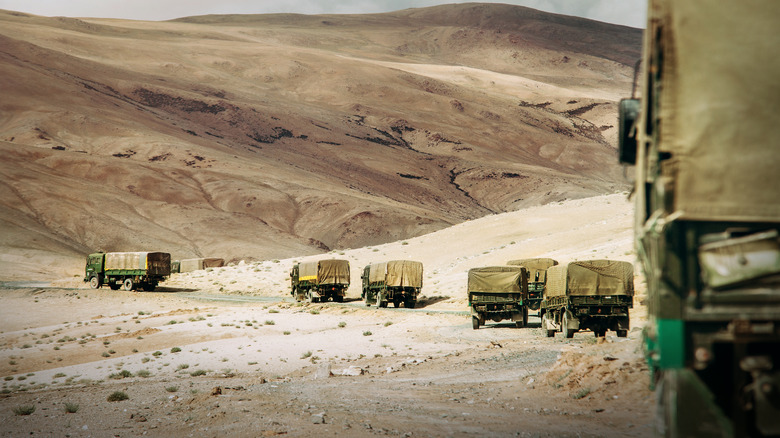Here's Why The US Military Once Burned Bibles
Burning books is one of those things that's done not just because it accomplishes the goal of getting rid of the objectionable material, but it does so with a certain visual panache. That's why it's often done so in a public context, according to Smithsonian Magazine: it shows just how far the vandals are willing to go to put down ideas that they're not going to tolerate.
Examples of book burnings in recent history include several such incidents carried out by the Nazis in Germany and, in the United States, people have publicly burned "Harry Potter" books because they've believed the books promote Satanism and the occult, according to Polygon.
In general, the government of the United States is pretty far removed from the business of censorship, particularly when it comes to censorship carried out via symbolic, public acts of vandalism. However, there was a time in recent history when the U.S. military carried out a massive book burning of Bibles, of all things.
The military burned Bibles illegally smuggled into Afghanistan during the war
The United States' war in Afghanistan was many things, but it was definitely not an attempt by the United States to forcibly bring Christianity to the devoutly Muslim country. U.S. service personnel were specifically forbidden from attempting to proselytize while there, according to CNN.
However, sometime in or around 2008, a church in the U.S. decided to translate the Bible into the Pashto and Dari languages, the two dominant languages in Afghanistan, and sent an untold number of translated Bibles to the country, with the hope that soldiers would distribute them to the locals. But when the local Al Jazeera news network broke the story, the military had egg on its face. Lt. Col. Mark Wright said that the military needed to make it clear that not only would they not tolerate unauthorized proselytizing, but that they were going to see to it that none of the Bibles were left intact, lest they get out. To that end, the contraband books were burned. "The decision was made that it was a 'force protection' measure to throw them away, because, if they did get out, it could be perceived by Afghans that the U.S. government or the U.S. military was trying to convert Muslims," Wright said.

